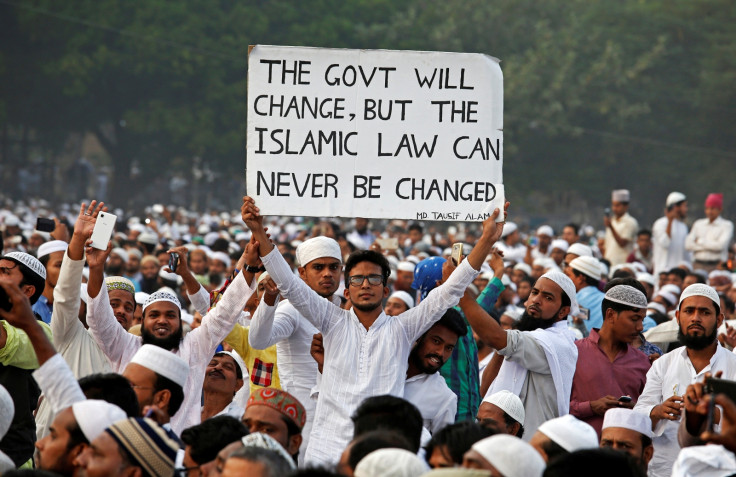Triple talaq: Indian court calls instant divorce system 'cruel' and 'most demeaning'
The court says the personal law of any community should violate the fundamental rights of individuals.

A top Indian court has scorned the practice of "triple talaq" in the country calling it "cruel" and "most demeaning". The Allahabad High Court said the instant divorce system prevalent among some Indian Muslims is "unconstitutional".
Observing that the personal law of any community should not violate the rights of individuals, the court said the separation method goes against the values of Islam and the Quran.
"Personal laws of any community cannot claim supremacy over the rights granted to individuals by the constitution," said Justice Suneet Kumar.
Under the divorce process, the Muslim man tells his wife the Arabic word "talaq" three times which means "I divorce you". Though in some practices unwilling couples separate after a waiting period, others part ways immediately depending on their following.
The practice has been criticised by rights groups and activists. The court's observation came in a case filed by a 23-year-old woman named Hina and her husband. Women are increasingly filing complaints that they are being divorced even via social media networks like WhatsApp, Skype and Facebook.
The court added: "The instant divorce (triple talaq) though has been deprecated and not followed by all sects of the Muslim community in the country, however, is a cruel and the most demeaning form of divorce practised by the Muslim community at large. The question which disturbs the court is should Muslim wives suffer this tyranny for all times? Should their personal law remain so cruel towards these unfortunate wives?"
Parliamentarians and activists have welcomed the court's remarks. A case pertaining to the system is also being heard by India's Supreme Court. The All India Muslim Personal Law Board argues that "constitutional guarantees should not be disturbed" and Sharia laws cannot be changed by any court, NDTV reported.
© Copyright IBTimes 2025. All rights reserved.






















